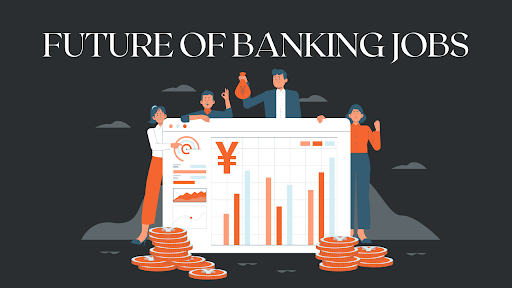
Future of Banking Jobs
Introduction
Students all across the world have long selected banking and financial services as a career path. Over ten multinational banks, including Goldman Sachs, JP Morgan, and American Express, and more than 30 Indian banks, including ICICI, Yes, Axis, IDBI, Kotak, HDFC, Citi, and others, are constantly seeking talent from Indian universities.
The banking industry's tremendous expansion and developments have opened the way for various banking employment options. Currently, tens of thousands of individuals work for the government in banks. This goes to show how influential the Banking Sector is in the Indian Job Market.
But will this trend continue in the future too?
Let us find out!
Future Prospects in the Banking Sector
According to IBEF, India's banking industry (private, public, and foreign banks) had total assets of $ 2.27 trillion in FY19, making it one of the fastest-growing in the world. It has also been adjusting to changing times by incorporating technology into its operations.
Because of the trend of digital transformation of banks, which makes them more accessible to consumers, there are a broad range of employment choices in the banking sector Today.
However, the future of Banking will be much different from Today.
Here are some trends that will drive the future of Banking Jobs!
Future Trends in Banking Jobs
1. Cyber Security
Due to the enormous value of financial data, fraudsters are increasingly focusing their attacks on client banking credentials. New vulnerabilities for hackers to attack are brought to the network as more institutions install mobile banking applications.
As a result, banks must adopt proactive security steps to protect their data from cyber-attacks. Hence, there is a growing need for cyber-security specialists in the banking sector.
As the world of Banking goes more and more digital, hiring cybersecurity will increase even further
2. Data Analytics and Data Integrity
Businesses now have access to more data than ever before, but many struggle to make the most of it.
They require analytical assistance at every stage of the process, from data collection through interpretation to making the best decisions possible based on the findings. Where will they look for this high-level data analysis?
According to a recent LinkedIn analysis, since 2019, hiring for Data Scientist, Data Science Specialist, Data Management Analyst, and Statistical Modeling has increased by 46%, and much of the hiring took place In the Banking Sector.
Data Analytics helps Banks in the following ways:
- Improving Sales and Marketing
- Delivering efficient Customer Support
- enhanced Security
- Optimized Products and Services
Hence, as competition increases in the banking sector market, the hiring of data analytics specialists is bound to increase
3. Enterprise Agility
For financial services (FS) firms, enterprise agility—the capacity to adapt quickly to opportunities and disruption—is a strategic requirement.
Agility is essential in a dynamic world to act and adapt to a changing and uncertain environment. Top-quartile financial performance is more than twice as probable for really agile companies as ordinary companies.
To achieve genuine enterprise agility, companies must go beyond agile approaches in IT or discrete change initiatives to build responsiveness to market pressures and opportunities across the board, all while growing the organization's stabilizing cultural and governance spine.
Hence, in the future, training to work in an agile environment would become a must.
4. Human-Centered Design
Digital banking emphasizes client centricity and provides a consistent customer experience across several channels. A customer-centric strategy necessitates banks to design products and services from the customer's perspective.
When banks include customers in the design process to tailor products and services to their specific needs, the products and services become more valuable to the client.
Technical skill is critical for a bank to flourish in Today's technology-driven environment. However, for a bank to prosper in the long run, it must prioritize long-term human talents. Current and future bankers must upskill and retrain to function more successfully in a digital world.
5. Block-Chain
Blockchain is a foundational technology. It is a technology that has wide-ranging applications in banking, government, medical, law, retail, and nearly every other field. The opportunity is huge, and you can still get in on the ground floor.
This implies that blockchain occupations have a lot of promise, and we already see a lot of progress in the field.
Conclusion
Professionals in the banking industry are no longer expected to have technical capabilities but are increasingly digital aware.
To support numerous digital banking efforts, banks are redefining employee roles and reforming their organizations, and the future will be much different than what we see today, especially in the Banking Sector.
To begin your career in this changing banking sector, visit our website - ISB&M kolkata - PGDM College in Kolkata






